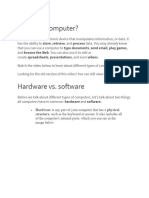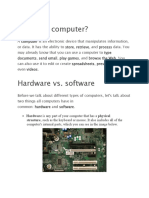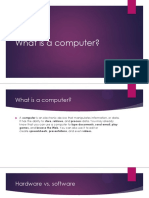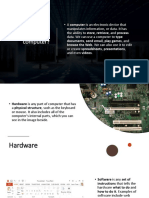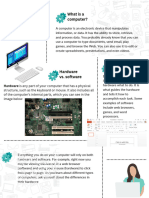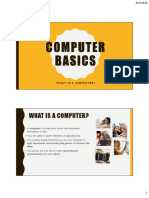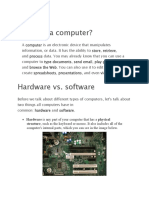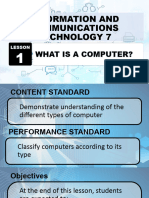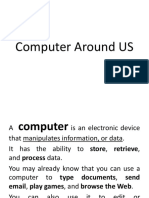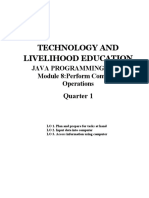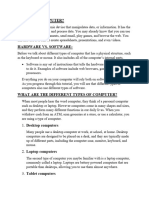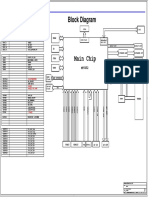0% found this document useful (0 votes)
9 views11 pagesPuter Basics
The document provides an overview of computers, distinguishing between hardware (physical components) and software (instructions for hardware). It describes various types of computers, including desktops, laptops, tablets, servers, smartphones, wearables, game consoles, and smart TVs, highlighting their functions and portability. Understanding these differences is essential as they impact how users interact with technology in daily life.
Uploaded by
Zandra grace De villaCopyright
© © All Rights Reserved
We take content rights seriously. If you suspect this is your content, claim it here.
Available Formats
Download as PPTX, PDF, TXT or read online on Scribd
0% found this document useful (0 votes)
9 views11 pagesPuter Basics
The document provides an overview of computers, distinguishing between hardware (physical components) and software (instructions for hardware). It describes various types of computers, including desktops, laptops, tablets, servers, smartphones, wearables, game consoles, and smart TVs, highlighting their functions and portability. Understanding these differences is essential as they impact how users interact with technology in daily life.
Uploaded by
Zandra grace De villaCopyright
© © All Rights Reserved
We take content rights seriously. If you suspect this is your content, claim it here.
Available Formats
Download as PPTX, PDF, TXT or read online on Scribd
/ 11


